
5 Powerful Digital Marketing Strategies for B2B and B2C Success
Mar 12, 2025 6 Min Read 2884 Views
(Last Updated)
In Today’s age, without our smartphones and other digital devices, most of us will feel lost. People digest all kinds of information on these devices. That’s why digital marketing is imperative for any business.
However, no two digital marketing strategies are ever the same, given the nuance of the field. Savvy marketers understand the crucial difference between marketing to a B2B (business to business) or B2C (business to customer) client. Both aim to capture the attention of two distinct audiences.
In case you don’t know, well, don’t worry, we have created this detailed guide to help you understand and differentiate between digital marketing strategies for B2B and B2C and describe the marketer’s approach to targeting these types of businesses. So let’s get started.
Table of contents
- But first, what is B2B and B2C Marketing?
- B2B Marketing
- B2C Marketing
- Key Differences to ensure effective marketing strategy.
- Audience Strategy: Numbers matter in B2B, while in B2C, emotions play a major role.
- Marketing/Funnel Goals
- Content Strategy: B2B customers want to be informed.
- Buyer's Journey: B2B Purchase decisions typically involve many stakeholders.
- Channels, Platforms, and Communication Style
- When do B2B and B2C marketing efforts intersect?
- Bottom Line? Digital Marketing Strategies for B2B and B2C
- FAQs
- How do the marketing strategies differ between B2B and B2C companies?
- How does the sales cycle differ between B2B and B2C marketing?
- Is it possible for a company to be successful in both B2B and B2C markets simultaneously?
But first, what is B2B and B2C Marketing?
B2B strategies contrast with B2C approaches to purchase cycles, communication methods, and the development of customer relationships. However, let’s first break them one by one, to help those who don’t know.
B2B Marketing
Business-to-business (B2B) marketing focuses on selling products or services to other businesses. This type of marketing targets companies that need goods for their production or to resell to other businesses. B2B marketing entails promoting your products or services to other businesses that are seeking ways to improve efficiencies, solve operational problems, or explore additional revenue streams.
This often involves cultivating long-term relationships to expand the range of products and services purchased by the same company. Examples of B2B include:
- A company that provides cybersecurity solutions for businesses to protect their data.
- A wholesaler that sells office supplies to other businesses.
- Salesforce provides CRM solutions for businesses to enhance customer interactions and streamline sales processes.
- Adobe offers software products like Creative Cloud and Marketing Cloud for businesses to create content, manage campaigns, and drive growth.
Enrolling in GUVI’s Digital Marketing course can help you become an expert in the digital world, regardless of your level of marketing expertise. Learn the ins and outs of email marketing, social media marketing, content production, SEO, and more from professionals in the field. Through practical projects and real-world case studies, acquire job-ready skills with globally recognized certifications.
B2C Marketing
Business-to-consumer (B2C) marketing involves selling products or services directly to individual consumers. Businesses use this type of marketing to meet the needs and desires of individual customers. B2C marketing targets everyday consumers, with a broader approach in messaging, communication channels, and incentives compared to B2B.
In Fisher’s words, the net you cast in B2C marketing is much wider than B2B, encompassing a broader range of demographics, socioeconomic groups, and tastes. Few Examples:
- A fast-food chain that sells burgers, fries, and beverages to individual customers.
- An online retailer that sells a variety of consumer goods, such as electronics, clothing, and home goods.
- Nike sells athletic footwear, apparel, and equipment to individual consumers, emphasizing performance and style.
- Coca-Cola markets soft drinks to individual consumers, focusing on refreshing taste and emotional appeal.
The global B2C eCommerce market size to reach $6.2 trillion by 2027.
Study by Grand View Research Inc
Key Differences to ensure effective marketing strategy.
Understanding the nuances between B2B and B2C marketing is crucial in tailoring effective strategies. While both aim to drive sales, their approaches differ significantly because of their distinct target audiences and goals. Let’s explore the key differentiators in their marketing methodologies.
| Metric | B2B Marketing | B2C Marketing |
|---|---|---|
| Target Audience | Professionals, decision-makers in organizations | Individual consumers |
| Marketing Goal | Lead generation, thought leadership, brand awareness | Call to action, brand awareness, customer acquisition |
| Decision Making | Rational, driven by business needs | Emotional, influenced by desires and lifestyle |
| Content Strategy | Informative, technical, focused on features | Creative, emotional, focused on brand image |
| Buyer’s Journey | Longer, more complex, multiple stakeholders | Shorter, more straightforward, single decision-maker |
| Communication Style | Formal, professional, focused on credibility | Relaxed, conversational, focused on emotion |
| Channels | LinkedIn, industry forums, email marketing | Facebook, Instagram, Twitter, YouTube |
| Platform | Professional networking sites, industry forums | Social media, video-sharing platforms |
ALSO READ: Top Digital Marketing Trends
Audience Strategy: Numbers matter in B2B, while in B2C, emotions play a major role.
B2B marketing targets professionals and decision-makers within organizations, such as CEOs, CFOs, CTOs, and procurement managers. These buyers are driven by rational decision-making, focusing on factors like efficiency, cost savings, and scalability. B2B marketing messages are informative, and technical, and emphasize features, benefits, and especially ROI.
B2C marketing targets individual consumers, who are driven by emotional decision-making, seeking products that fulfill their personal needs and desires. B2C marketing messages are creative, emotionally appealing, and focus on brand image, lifestyle, and customer experience.
In B2B marketing, ROI is a critical factor as businesses seek efficiency and expertise, while B2C marketing often revolves around deals and entertainment, reflecting the differing motivations and decision-making processes between the two audiences.
Also Read: Top 10 Local SEO Strategies for Small Businesses
Marketing/Funnel Goals
B2B and B2C marketing strategies vary significantly because of their distinct target audiences and objectives. B2B marketing tailors its approach to engage professionals and decision-makers within organizations, requiring an informative and professional tone. In contrast, B2C marketing targets individual consumers, requiring a more creative and emotionally resonant approach.
B2B strategies focus on lead generation, thought leadership, and relationship building to establish long-term partnerships.
- Lead Generation: B2B marketing aims to generate high-quality leads by targeting decision-makers within organizations.
- Thought Leadership: B2B marketers strive to establish their business as a thought leader by creating valuable content.
- Brand Awareness: B2B marketing focuses on increasing brand visibility among decision-makers to build credibility.
- Relationship Building: B2B marketing aims to build long-term relationships through personalized communication.
- Customer Retention: B2B marketing seeks to increase customer loyalty by providing excellent customer service.
- Sales Enablement: B2B marketers equip sales teams with tools and training to drive revenue growth.
Also Read: Top 15 Growth Marketing Strategies
B2C strategies prioritize customer acquisition, brand awareness, and engagement to drive immediate sales and foster loyalty. These differences underscore the significance of customizing marketing strategies to reach and resonate effectively with each audience.
- Call to Action to Acquire New Customers: B2C marketing creates compelling calls to action to attract new customers, using persuasive messaging and offers.
- Brand Awareness: B2C marketing focuses on increasing brand visibility among consumers to establish a strong brand presence and attract new customers.
- Customer Acquisition: B2C marketing aims to attract new customers through targeted advertising, promotions, and content marketing, convincing them to choose the brand.
- Engagement: B2C marketing increases customer engagement through social media, email marketing, and other channels to build relationships and encourage loyalty.
- Customer Retention: B2C marketers increase customer loyalty by providing excellent service, loyalty programs, and ongoing communication to retain existing customers.
- Sales Growth: B2C marketing drives sales growth through upselling, cross-selling, and new product launches, targeting both existing and new customers.
- Reputation Management: B2C marketing protects and enhances the brand’s reputation by monitoring online reviews, responding to feedback, and managing social media presence.
Content Strategy: B2B customers want to be informed.
B2B content strategy differs significantly from B2C, primarily due to the audience’s expectations and needs. Unlike B2C customers, who often respond to more generalized and emotionally driven content, B2B customers expect detailed and tailored information that directly addresses their business challenges and objectives. B2B buyers are typically looking for solutions that can improve efficiency, drive cost savings, or enhance their competitive edge.
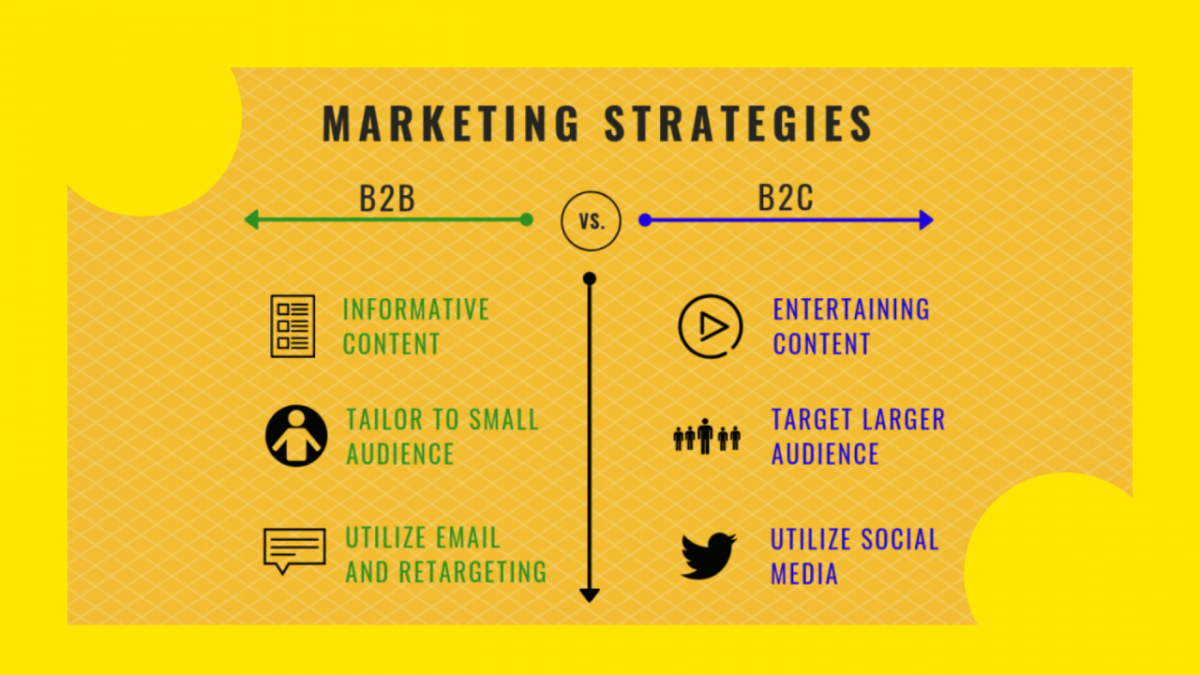
Therefore, B2B content should focus on providing in-depth insights into how a product or service can benefit a business, including specific use cases, success stories, and detailed product information. This level of detail helps build credibility and trust with B2B buyers, who are more likely to engage with content that demonstrates a deep understanding of their industry and challenges.
Read more on content marketing strategy: The 5C’s of Effective Content Marketing
Buyer’s Journey: B2B Purchase decisions typically involve many stakeholders.
In B2B marketing, the sales cycle is longer and more complex, involving multiple touchpoints and decision-makers. B2B digital marketing strategies focus on nurturing leads and building relationships over time. The buying process for B2B customers is often more deliberative, with a focus on long-term goals and the need for solutions that provide sustained value. B2B purchases are typically ongoing relationships, requiring careful consideration and patience from marketers.
On the other hand, the B2C sales cycle is shorter and more straightforward, with a quicker path to purchase. B2C digital marketing strategies emphasize quick conversions and impulse purchases, tapping into the emotional aspects of consumer decision-making. B2C customers are more likely to make purchases based on emotional triggers, such as brand affinity or a compelling narrative.
Understanding these differences is crucial for marketers to tailor their strategies effectively. B2B marketers need to focus on providing detailed information and nurturing leads through the longer buying process, while B2C marketers should aim to create emotional connections and facilitate quick, seamless transactions.
Also Read: Brand Storytelling in the Digital Age: Creating Compelling Content from Scratch
Channels, Platforms, and Communication Style
B2B digital marketing prioritizes channels like LinkedIn, industry forums, and cold email marketing. These platforms are chosen for their ability to reach a professional audience and facilitate networking and lead generation. B2B communication is typically more formal and professional, focusing on presenting the company as a reliable, credible, and trustworthy partner.
The use of technical language and industry-specific jargon is common, as the goal is to educate and inform potential customers. B2B marketing also places a strong emphasis on building relationships and establishing trust, often using personalized and targeted messaging to achieve this.
In contrast, B2C digital marketing tends to focus on platforms like Facebook, Instagram, Twitter, and YouTube to engage with consumers directly. These platforms are chosen for their ability to reach a large audience and facilitate visual content and storytelling, which are key elements of B2C communication. B2C communication is more relaxed, conversational, and emotional, designed to appeal to consumers’ emotions and desires.
The language used is simple and accessible, focusing on how products or services can improve consumers’ lives or fulfill their needs and desires. B2C marketing often includes broader messaging that can appeal to a wider audience, reflecting the more diverse nature of consumer preferences.
Also Explore: Top 10 Social Media Marketing Tips to Grow Your Business
When do B2B and B2C marketing efforts intersect?
The crossover between B2B and B2C marketing happens when companies cater to both businesses and consumers at the same time. This mix is common in industries like healthcare technology. These companies provide equipment to hospitals and clinics (B2B) and also sell health devices directly to people (B2C).
Healthcare tech firms use this blend of B2B and B2C strategies to reach more customers and markets. They sell to businesses and individuals, which helps them grow and serve a wider audience.
In design and oral care, companies often straddle both B2B and B2C markets too. For example, a design agency might work with businesses for office spaces and with individuals for home designs. Similarly, an oral care brand might sell toothbrushes and toothpaste to people and also supply products to dentists.
In these situations, it’s important to understand both B2B and B2C marketing. B2B focuses on building relationships and solving business needs, while B2C aims to connect with individual consumers on an emotional level. By mixing these approaches, companies can create effective marketing strategies that speak to different audiences, helping them succeed in today’s diverse market.
Explore GUVI’s B2B Verticle: GUVI For Corporates
Join GUVI’s Digital Marketing Course to kickstart your journey in this exciting field. Gain expertise in ChatGPT, WordPress, Meta Business Suite, Google Analytics, YouTube Analytics, Google Ads Manager, and more. Master essential skills in SEO, social media marketing, email marketing, content creation, and digital advertising tactics to excel in the Digital Marketing industry.
Bottom Line? Digital Marketing Strategies for B2B and B2C
While both B2B and B2C marketing share common goals of driving sales and building brand awareness, they require distinct strategies to reach their target audiences effectively. B2B marketers often face challenges related to creating compelling content and managing time constraints, whereas B2C marketers may struggle with limited advertising budgets and increasing brand visibility.
Understanding these differences is crucial for campaign planning, as what works for one may not necessarily work for the other. By aligning marketing strategies with the unique needs and behaviors of their respective audiences, marketers can enhance the success of their campaigns and build stronger relationships with their customers.
Ultimately, regardless of whether you’re marketing to businesses or consumers, remember that all marketing is person-to-person, highlighting the importance of connecting on a human level to drive engagement and loyalty.
Also Read: 8 Steps to Make an Effective Digital Marketing Plan
FAQs
B2B marketing strategies often focus on building relationships, providing detailed information, and addressing business needs. In contrast, B2C marketing strategies are more about creating emotional connections, using simpler language, and appealing to individual desires and lifestyles.
The B2B sales cycle is typically longer and more complex, involving multiple decision-makers and a focus on building relationships. In contrast, the B2C sales cycle is shorter and more straightforward, often driven by impulse purchases or emotional triggers.
Understanding these differences is crucial for developing effective marketing campaigns tailored to each market segment.
Yes, a company can target both B2B and B2C markets, but it requires distinct marketing strategies for each. The company needs to understand the differences in target audiences, communication styles, and purchasing behaviors to effectively reach and engage both types of customers.

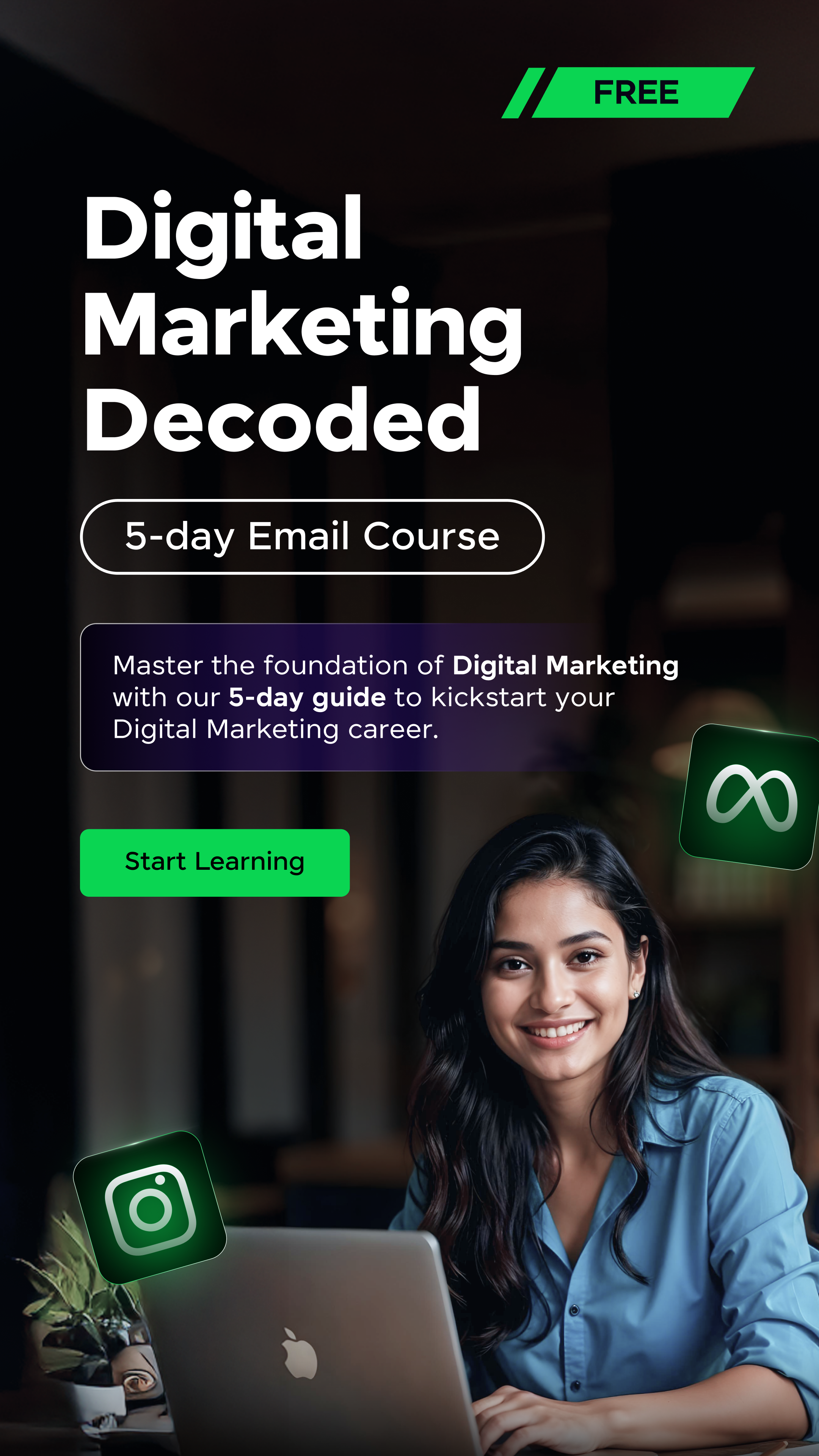






















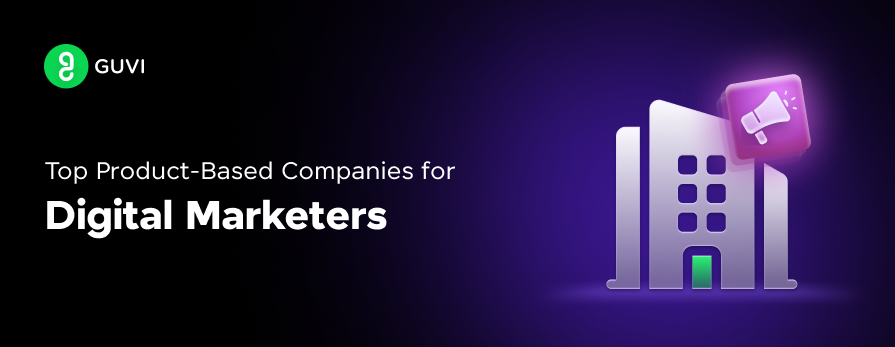

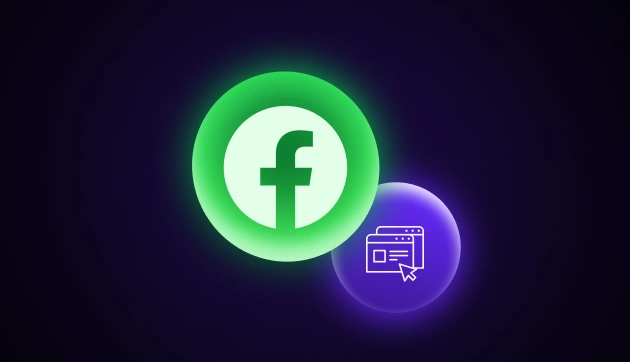

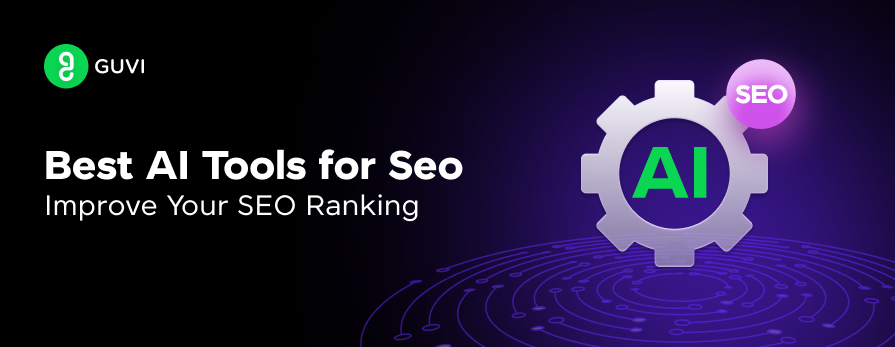

Did you enjoy this article?